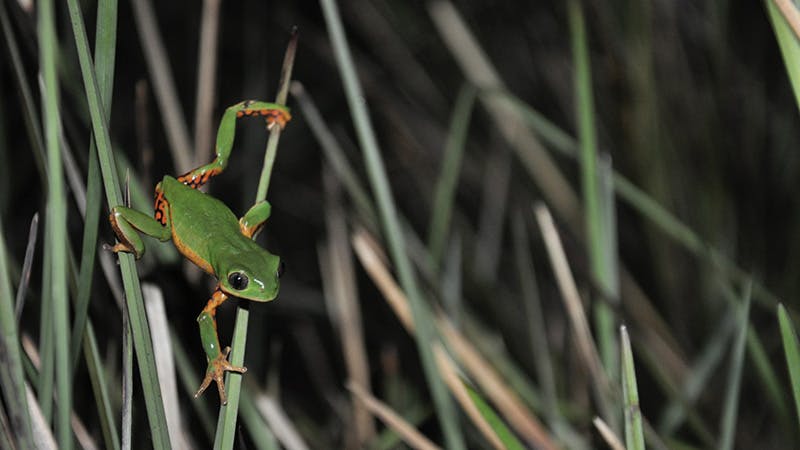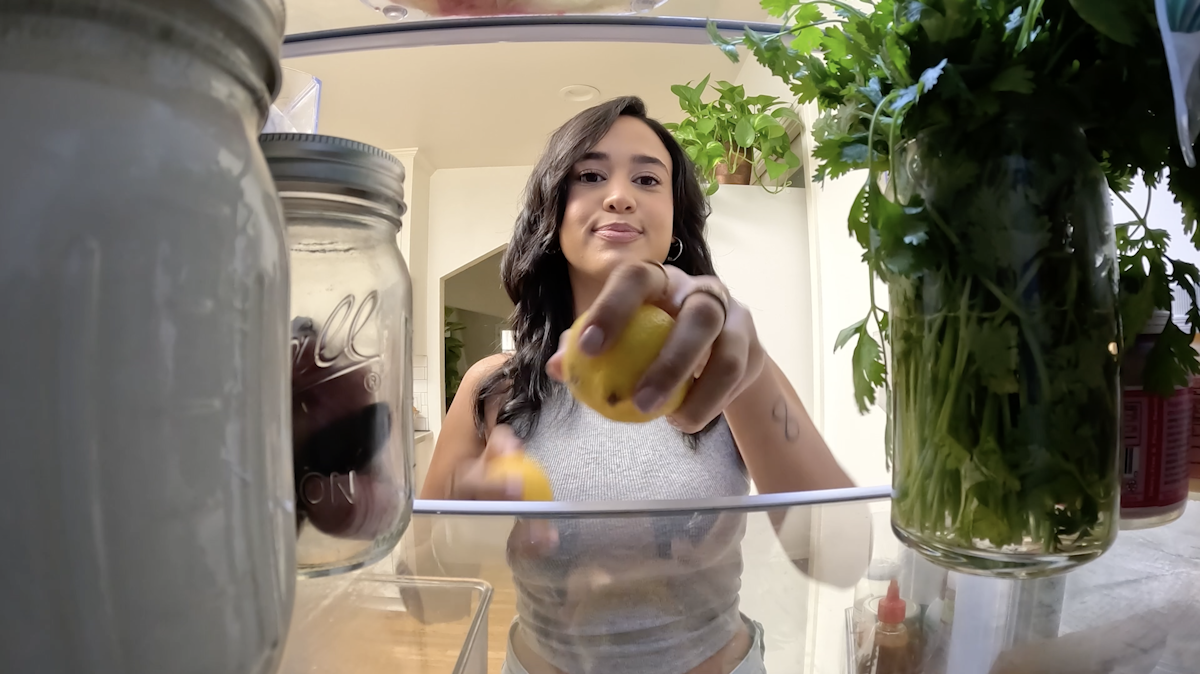 BACK TO NEWS
BACK TO NEWSThe way we eat now is eating away at our livable planet
Animal agriculture is a major threat to biodiversity, the economy and national security
By Wes Sechrest on January 11, 2024 
If you have only seen the cartoon version of a Tasmanian Devil, you should know that they are actually much smaller and more adorable in real life.
I had the privilege of seeing some of them released into a wildlife sanctuary on mainland Australia, where they were wiped out more over 3,000 years ago, in a country with the highest current mammal extinction rate in the world. Australia also suffers from one of the main global drivers of ecosystem destruction, a common — yet often overlooked — threat to the fabric of life on our planet: our ever-increasing demand for meat. In fact, 79% of land cleared in Australia from 2016-2020 was for raising livestock.
We have begun to transition the energy that powers our daily lives away from fossil fuels and toward sustainable sources, such as solar and wind. However, we have had very little focus on the other energy system — the food that powers our lives. The way that most of us eat now is eating away at our livable planet, and world leaders (and others with the power to change the food system) are not acting fast enough to match the urgency of what we are facing.
The big picture
Currently, about half of the world’s arable land is used for agriculture, and of that, 83% is used for pasture and feed crops for livestock, which produces only 18% of our calories. The process of growing plants to feed animals to feed people is an incredibly inefficient system that has overtaken critical ecosystems.
Animal agriculture is a major threat to biodiversity, the economy and national security, since there are already many conflicts happening over sources of water and food. Animal agriculture emits more carbon emissions than all transportation combined (cars, trucks, planes, and ships), is a major risk for zoonotic diseases, and is polluting vast amounts of land, freshwater and seas. The oceans and some freshwater systems are the only places where we industrially hunt wildlife, increasingly for use merely as feedstock for farmed animals (both livestock and farmed fish, such as salmon), which has decimated ecosystems. In fact, if you weighed all the mammals on land, humans and our domesticated mammal species account for 98%, while all the other 6,500+ wild mammal species (from squirrels to monkeys to elephants) weigh only 2%.
The Brazilian Amazon is threatened by cows and other livestock — in the last 30 years, 95% of the deforestation (including intentionally-set fires) has been carried out for pasture and feed crops. The scale of this destruction is leading the Amazon toward a tipping point where the rainforest will transition to dry savannah. The economic efficiency of animal agriculture (in the Brazilian Amazon, for example, one cow requires around 2.5 acres of land on average) means that we are exchanging diverse Amazon rainforest for inefficient degraded pastures with limited economic benefits for local communities. As ecosystems fail, so too does our life support system.
With more than 8 billion people to feed, cutting out the “middle cow” and going straight to the source — plants — is by far the most efficient way to feed our society.
It’s not (entirely) our fault
As primates, we are driven by our taste for fats, sugars and salts, which has been exploited by those in charge of our industrial food systems. In fact, we have been convinced of some extraordinary falsehoods.
Pasture-raised cows are not climate friendly. The powerful meat and dairy lobbies have convinced us “milk does a body good” when the reality is much different. You do not need a steak to be strong (or to be “a man”). In fact, some of the most powerful mammals in the world eat only plants — gorillas, hippos, elephants and horses.
Other industries have joined the grift, with the majority of the health care and pharmaceutical industries centered around treating lifestyle diseases instead of giving us the tools to prevent disease in the first place (in part through diet). Misinformation-based public relations ploys abound, as well as massive harmful government welfare in the form of subsidies including for pasture and feed crops. And contrary to popular lore: The United States is not feeding the world; we are not even feeding America.
We need to reduce animal agriculture and increase sustainable alternatives. And we need to protect the ecosystems that are left intact and rewild those degraded by animal agriculture.
The first step is in a pretty familiar and simple place: your fridge.
The future of food
The solution is here. We can instantly shift our diets toward more plants, algae (such as seaweed) and fungi. In fact, this is a solution that is a triple win — for our health, our climate and our wildlife.
In addition, for those who (for either cultural, taste or convenience reasons) want to consume meat, dairy, eggs, fish and other animal products, there is rapid development of more sustainable and “clean” equivalents derived from plants, cells, microbes, fungi and algae. This shift will dramatically lower deforestation, greenhouse gas emissions, freshwater pollution, zoonotic diseases and other threats to nature, people and our economies.
Shifting to more plant-based diets and increasing alternatives will allow a revolution for nature that will also help mitigate climate change. The amount of land, freshwater and ocean that can be restored and protected is astounding. If we do nothing, 90% of remaining land animals will lose their habitat to agriculture by 2050. By replacing just half of the world’s consumption of cows (including milk), chickens, and pigs with plant-based alternatives by 2050, we could effectively halt that ecological destruction.
Change is not just possible, but urgent
As we have seen with our current addiction to unsustainable fossil fuels, entrenched systems are hard to change. But change is coming, and everyone can be a part of making it happen sooner and with greater impact.
The United Nations Climate Change Conference (COP28) is serving (mostly) plants due to popular demand and major backlash to previous offerings of meat at the event. And the leaders at COP28 are adding agriculture to the agenda.
But what can we as individuals do?
On a personal level, we can reduce our food footprints (here’s an app to get you started) and support new and existing alternatives to animal products. On a more systematic level, we can look to (and consider voting for) leaders who will transition us to better food and energy systems.
Re:wild has been a plant-based organization from the start because we are in the nature business, and animal agriculture is the biggest driver of biodiversity loss and ecosystem destruction. Simply put, we believe choosing more plant-based foods is the best thing an individual can do for the planet.
What will you choose? Are you ready to rewild your fridge?
About the author
Wes Sechrest
Dr. Wes Sechrest founded Re:wild and serves as chief scientist and CEO. He leads the organization’s efforts to explore, document, and protect the world’s most endangered species. Wes has a background in conservation biology, particularly focused on mammal conservation and priority-setting for biodiversity conservation. He unites academic and applied conservation to apply novel, agile, and collaborative approaches to save wildlife in the most efficient and effective ways possible.
Related News and Other Stories

By Milo Putnam on October 20, 2023
Brazil’s battle for beef pushes Critically Endangered frog from its wetland home
READ MORE
By Lindsay Renick Mayer on September 21, 2023
